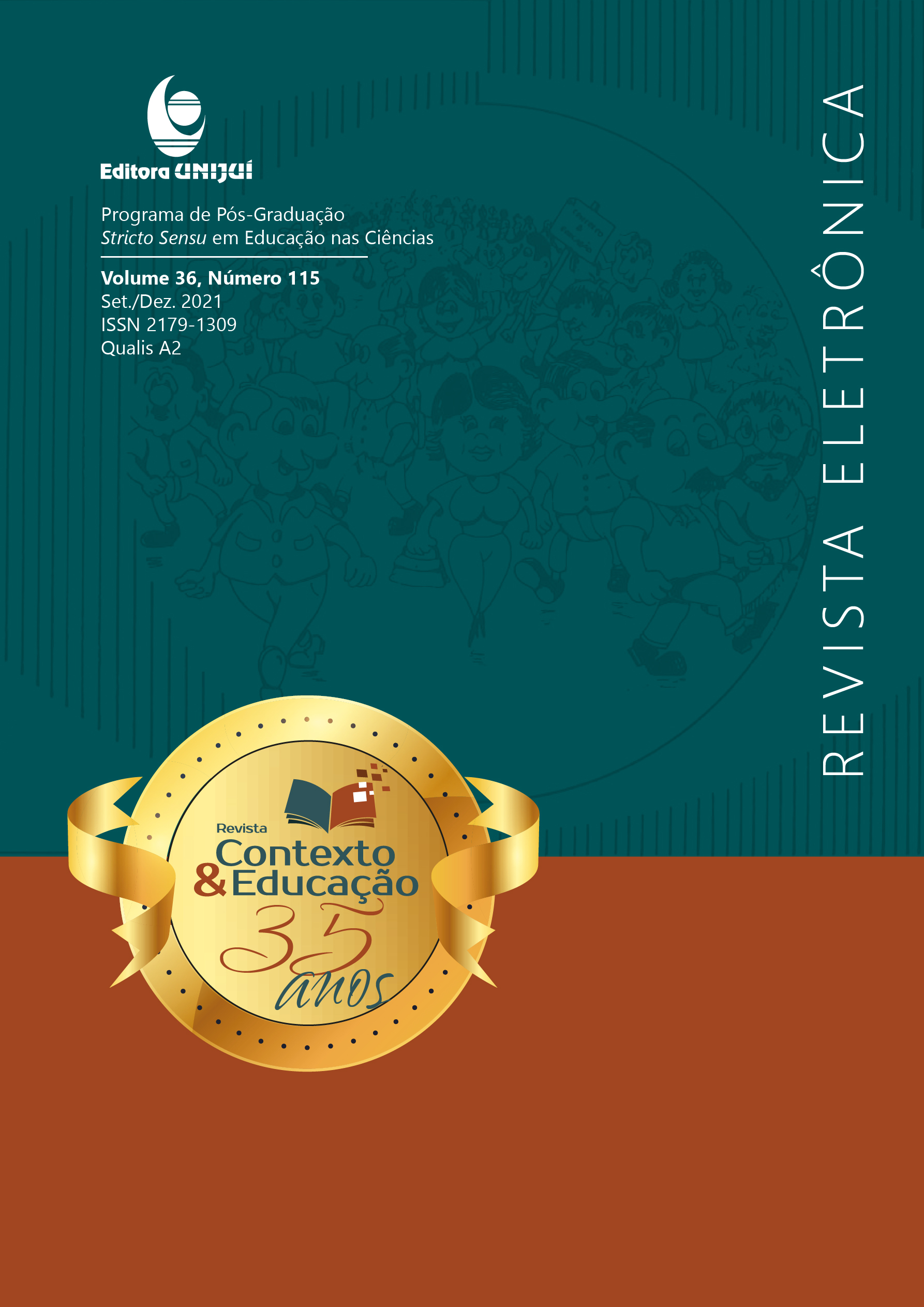THE FUNCTION OF THE CURRICULAR INTERNSHIP FOR TEACHING TRAINING: PERSPECTIVE OF THE STUDENTS OF THE LICENTIATE IN RURAL EDUCATION DEGREE COURSE
: PERSPECTIVE OF THE STUDENTS OF THE LICENTIATE IN RURAL EDUCATION DEGREE COURSE
DOI:
https://doi.org/10.21527/2179-1309.2021.115.11364Keywords:
Initial Formation. Internship. Educational Practice. Distance Education.Abstract
This article aims to reflect about the importance of the curricular supervised internship II to the students of the Rural Education Degree Course, offered in distance modality, by the Federal University of Santa Maria (UFSM), from the experiences of the interns in the schools. The research was developed with students enrolled in the internship discipline, of the first offer that covers the support centers of Agudo, Cerro Largo, Itaqui, Seberi e São Sepé. The research is an exploratory study with a qualitative approach. To its development the bibliographic, documental and field researches and analysis were used. We conducted a Google Forms questionnaire, to discover the profile of the students, the role and importance of the curricular internship for the teaching training and the difficulties faced. The internship activities allow interaction with different school realities, moment in which the students are able to perform the intermediation between theoretical and practical knowledge, seeking from this experience to internalize practices that constitute them as teachers. We highlight the importance of the internships to the teaching future, as a way to consolidate emancipatory practices.
Downloads
Published
How to Cite
Issue
Section
License
By publishing in Revista Contexto & Educação, authors agree to the following terms:
All works are published under the Creative Commons Attribution 4.0 International License (CC BY 4.0), which allows:
Sharing — to copy and redistribute the material in any medium or format;
Adaptation — to remix, transform, and build upon the material for any purpose, even commercially.
These permissions are irrevocable, provided that the following terms are respected:
Attribution — authors must be properly credited, a link to the license must be provided, and any changes made must be indicated.
No additional restrictions — no legal or technological measures may be applied that legally restrict others from doing anything the license permits.
Notices:
The license does not apply to elements that are in the public domain or covered by legal exceptions.
The license does not grant all necessary rights for specific uses (e.g., image rights, privacy, or moral rights).
The journal is not responsible for the opinions expressed in the articles, which are the sole responsibility of the authors. The Editor, with the support of the Editorial Board, reserves the right to suggest or request modifications when necessary.
Only original scientific articles presenting research results of interest that have not been previously published or simultaneously submitted to another journal with the same purpose will be accepted.
Mentions of trademarks or specific products are intended solely for identification purposes and do not imply any promotional relationship by the authors or the journal.
License Agreement (for articles published from October 2025): Authors retain the copyright to their article and grant Revista Contexto & Educação the right of first publication.


